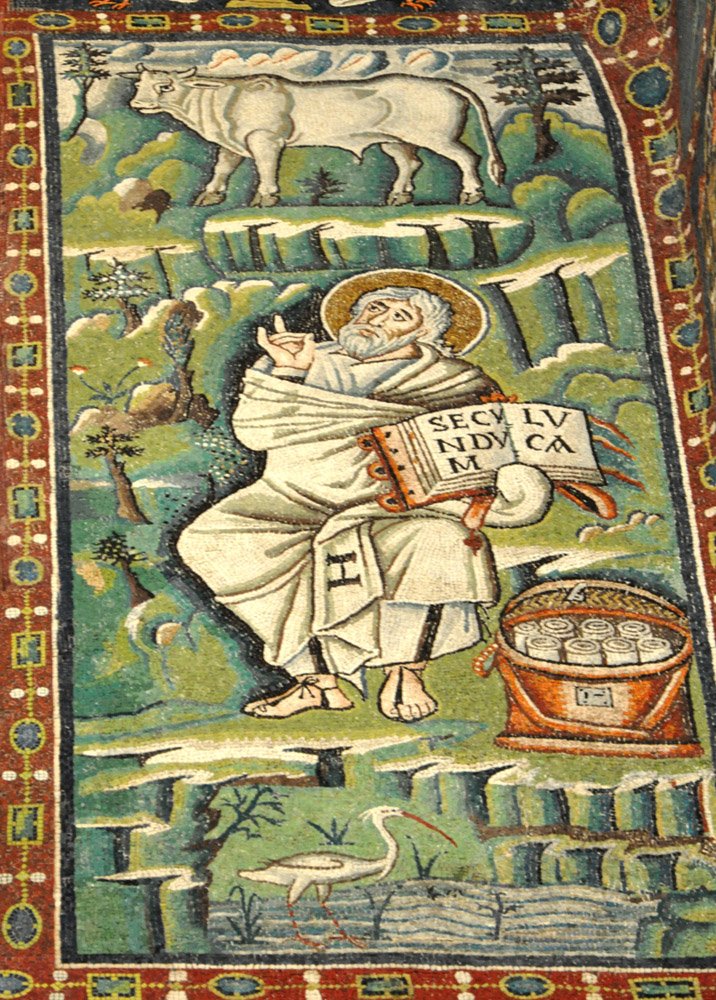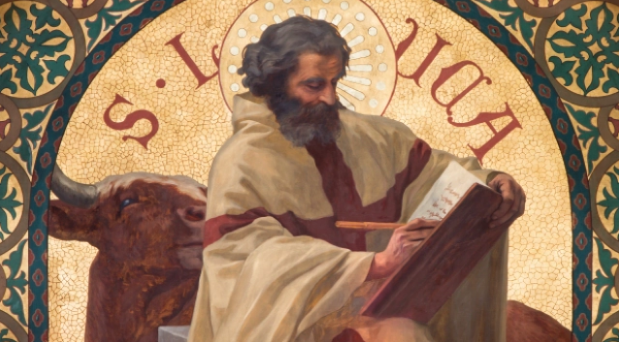
The Greatness of the Lord:
A Bible Study of the Gospel of Luke
“My soul proclaims the greatness of the Lord
and my spirit rejoices in God my savior!”
Father Dion and Patricia Jennings invite you to join them on Zoom for fellowship and conversation from 6 p.m. to 7:15 p.m. on Thursday evenings. Our study will include an acclaimed verse-by-verse film version of the gospel found on YouTube below.
Click HERE to register for Bible Study of the Gospel of Luke.
After registering, you will receive a confirmation email containing information about joining the meeting.
For more information, please get in touch with Father Dion at dthompson@stannes-annapolis.org, or Patricia Jennings at pajquilter@yahoo.com.
Session One –January 13th
Chapters 1 - 4: Birth, Rejection and the “purpose driven” Christ. “The Spirit of the Lord is upon me!” Consider your own purpose.
Splanchna: “To be moved with pity or compassion.” We find this word in Luke 1:78 when Zechariah sings: “By the tender mercy of our God, the dawn from on high will break upon us.”
• How do you see God’s mercy working in the gospel story and in your life? Something to consider?
View Chapters 1-4 in the video below:
-
Chapter 1 Linked HERE
Chapter 2 (17:56) Linked HERE
Chapter 3 (35:12) Linked HERE
Chapter 4 (40:48) Linked HERE
Session Two –January 20th
Chapters 5 - 7: Jesus is the Lord of the Sabbath. What does it mean to call him Lord?
Akolouthe moi: “Follow Me!” These are the words by which Jesus called Levi the tax collector. (Luke 5:27) They speak to the idea of Christian discipleship and a deep commitment to Jesus, to participation in his work of salvation and to sharing his fate. Consider Jesus’ admonition: “Whoever does not carry the cross and follow me cannot be my disciple.” (Luke 14:27) The concept is found throughout the four gospels, but takes on a special significance in Luke. Joseph A. Fitzmyer writes the following in his commentary: “To be a disciple of Christ one has to follow him along the road that he walks to his destiny in Jerusalem, his exodos, his transit to the Father. … Because of the geographical perspective in the Gospel, the ‘following’ has a pronounced spatial nuance: the disciple must walk in the footsteps of Jesus.” Each day our Lord calls out: Akolouthe moi – Follow me! What is your response?
View Chapters 5-7 in the video below:
Session Three –January 27th
Chapters 8 - 10: One of the great questions: Who do you say that I am? End with the Good Samaritan and Jesus’ instruction: Go and do likewise.
Themelios: “Foundation” This word appears twice in the parable that ends Chapter Six. There and elsewhere in the New Testament themelios refers to the necessity of applying Jesus’ teachings to one’s life and to the life of the Christian church.
Jurgen Blunck, writing in The New International Dictionary of New Testament Theology, offers the following observation: “Just as a foundation is of decisive importance in building a house, so it is with the church. The foundation is Jesus Christ. … [The church] is no longer the church, if she allows other things to be regarded as fundamental such as blood or race.”
May your faith be set on the sure foundation of Jesus Christ.
View Chapters 8-10 in the video below:
Session Four –February 3rd
Chapters 11 - 14: Lord, teach us to pray. Prayer and the spiritual life. An open discussion on prayer and our lives as a people and church of prayer.
Phos – “Light”: Since ancient times, this potent word has been associated with the sun, with daylight, with salvation and knowledge. We find it in Luke 1:78-79 as part of Zechariah’s song and in Luke 11:33-36 as part of Jesus’ teaching. As we know from Genesis 1:3-4, light is God’s first ‘good’ work of creation: “Let there be light … And God saw that the light was good.”
“Thus, from the beginning, the true God presents himself as creator of the light that dominates and pierces the darkness, so that one speaks not only of the ‘light of heaven’ but of the ‘light of God,’” writes Ceslas Spicq in his monumental Theological Lexicon of the New Testament. He goes on to say: ‘In the Gospels, the word ‘light,’ used almost always in a religious sense, cannot be understood except in terms of the OT; but it is applied to Christ and his disciples in such a way that Christianity may be defined as a religion of the light.”
As Christians, we are called to live as children of light who shine like stars in the world.
View Chapters 11-14 in the video below:
-
Chapter 11 (1:57:05) Linked HERE
Chapter 12 (2:05:58) Linked HERE
Chapter 13 (2:14:39) Linked HERE
Chapter 14 (2:21:50) Linked HERE
Session Five –February 10th
Chapters 15 - 18: Another great question for us to consider: What do you want me to do for you? These are Jesus’ words to the blind man. What do we ask of Christ?
Mathetes – Disciple: This word describes someone who is a student, pupil or apprentice. She is always learning, always being instructed. During one of his sermons, St. Augustine used the image of the classroom to describe our relationship to Jesus Christ: “We are all, you see, fellow students, there is just one master in this school.”
In Luke 6:12-16, Jesus chooses his inner circle from the crowd of disciples gathered around him. Though The Twelve have a unique mission, they never stop being disciples. True discipleship is revealed by how we express the teachings of Jesus Christ in our lives and in our world. It is an essential part of our witness.
Dietrich Muller, writing in the New International Dictionary of New Testament Theology, offers this insight: “It is important for understanding discipleship of Jesus to realize that the call to be a disciple always includes the call to service.”
We learn, so that we may follow. We follow, so that we may serve.
View Chapters 15-18 in the video below:
-
Chapter 15 (2:29:28) Linked HERE
Chapter 16 (2:34:50) Linked HERE
Chapter 17 (2:40:20) Linked HERE
Chapter 18 (2:47:52) Linked HERE
Session Six –February 17th
Chapters 19 - 21: The one who has come to seek out and save the lost enters Jerusalem in triumph. Given the story so far, where are you in the crowd?
Ptowchos – Poor: From the beginning Luke has an eye on “the poor” and our attitude toward possessions. Mary sings of the lowly being lifted up; Jesus says he has come to proclaim good news to the poor; the poor are blessed and will inherit the kingdom of God.
Conversely, Mary sings that the rich will be sent away empty; the rich man who ignored Lazarus spends eternity on the wrong side of a gap that cannot be crossed. Then there is Zacchaeus, the wealthy tax collector whose actions towards reconciliation bring salvation.
Luke does not always depict the rich and poor in purely stark terms. But he does ask us to examine our own attitudes. That Jesus is poor is key to understanding Luke’s perspective. It also has informed the Christian response to wealth and poverty, sometimes to the Church’s benefit and sometimes to its shame.
Wealth, in and of itself is not evil, and poverty is not necessarily a virtue.
Joseph A. Fitzmyer, writing in his two-volume commentary on the gospel, offers the following two observations: “The poor in the Lucan Gospel are not only to be understood as the economically and socially poor, but are associated with prisoners, blind persons, the downtrodden. … The rich and the poor in the Lucan writings symbolize, in effect, the rejection and acceptance of Jesus the prophet announcing the new message of God’s salvation and peace.”
View Chapters 19-21 in the video below:
Session Seven –February 24th
Chapters 22 - 24: The Passion. Jesus revealed in scripture and the breaking of the bread. Luke set out to give us an “orderly account … so that you may know the truth.” Has he succeeded?
Soter/Soteria – Savior/Salvation: These are beautiful words. They have such depth of meaning, encompassing the secular and the spiritual. The ancient gods brought salvation, as did Julius Caesar. Salvation was equated with peace and being rescued from danger. One was “saved” by a “savior.”
Consider the following inscription at the Lincoln Memorial in Washington, D.C.: “In this temple as in the hearts of the people for whom he saved the Union the memory of Abraham Lincoln is enshrined forever.” Here we see our president as a savior who brought salvation to our country.
In the following quote, Ceslas Spicq, writing in his Theological Lexicon of the New Testament, describes the Christian perspective on soter/soteria: “It is no exaggeration to say that the whole covenant is summed up in the announcement of the angel to the Virgin Mary: ‘You shall give birth to a child and you shall call his name Jesus,’ that is, ‘Yahweh saves.’”
Imagine the rejoicing in the home of Zacchaeus the tax collector when this prophecy came true: “Today salvation has come to this house, because he too is a son of Abraham. For the Son of Man came to seek out and to save the lost.” Luke 19:9-10.
View Chapters 22-24 in the video below:
Session Eight –March 3rd
De-ah-noigo – Open/Explain: “Then their eyes were opened, and they recognized him.” Luke 24:31
The men walking with Jesus on the road to Emmaus did not recognize him because their eyes were kept from this realization. Blindness, recovery of sight, opening of closed minds, all are themes at work in Luke’s gospel. There is also a cosmic understanding, such as when heaven was opened and the Holy Spirit descended on Jesus at the time of his baptism.
Two important openings occurred during the Emmaus encounter. Jesus opened the minds of the two men to understand what had been said about him in the scriptures. And, at table, their eyes were opened to recognize him as he took the bread, blessed it, broke it and shared it. Then he was gone.
But we know that Jesus lives on in God’s holy word and in the sacred meal we share. May you be open to being opened.














